When we first start off in ministry, whether as an intern, a youth pastor, or an associate, our ministry duties mostly consist of what other people give us to do and things we have to do because they are in our job description or because there’s no one else to do them, irrespective of whether we enjoy those things or are even good at them.
And if we’re not careful, that pattern can persist throughout our ministry “career.” Doing what we do because it’s expected of us, because there’s seemingly no one else who can or will do those things, and precious little time and attention given to the pieces of ministry we actually love.
This passive stance towards our own job descriptions leads to burn out, dejection, and pastors who either quit… or wish they could.
But freeing ourselves from the hamster-wheel of duty and expectations and embarking on the journey of moving our job descriptions towards what we are good at and passionate about is easier than you might think.
And it all starts with identifying what you do, what you love doing, and what you are good at doing.
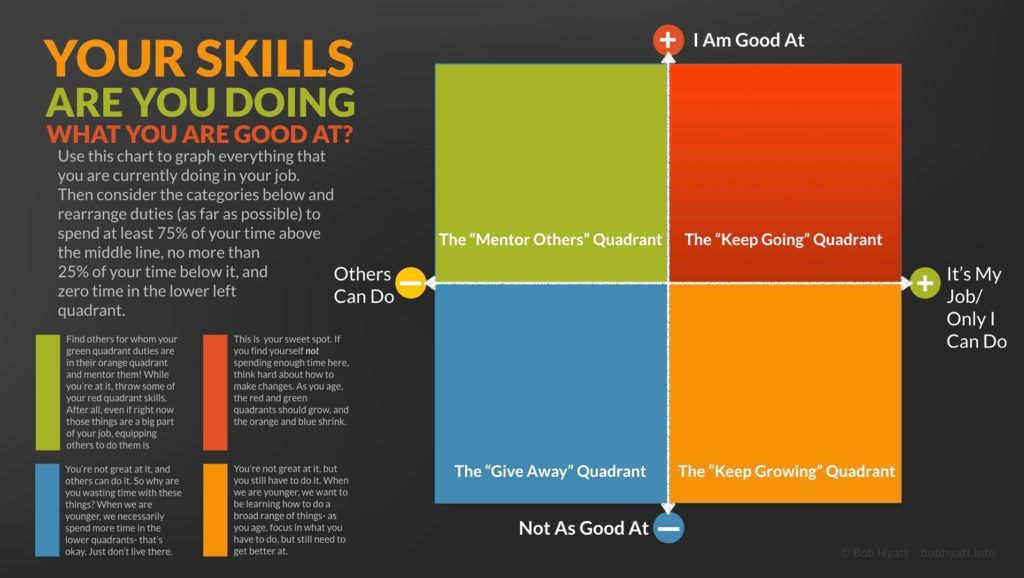
Take a look at the chart above. Begin to think thru all you do in the course of your ministry. What are the things you are good at? Not great at? What are the things other people could do if they were given permission or mentoring? What are the things only you can (currently) do? Draw this quadrant grid and start plotting!
Is there anything is that lower left corner? What will you do with those things? The one thing you probably shouldn’t do is keep doing them? What’s in the lower right quadrant? What steps will you take to get batter at those things? Spend some time thinking and praying about how to get better here- what classes (online or local) can you take, books can you read, mentors or coaches can you enlist?
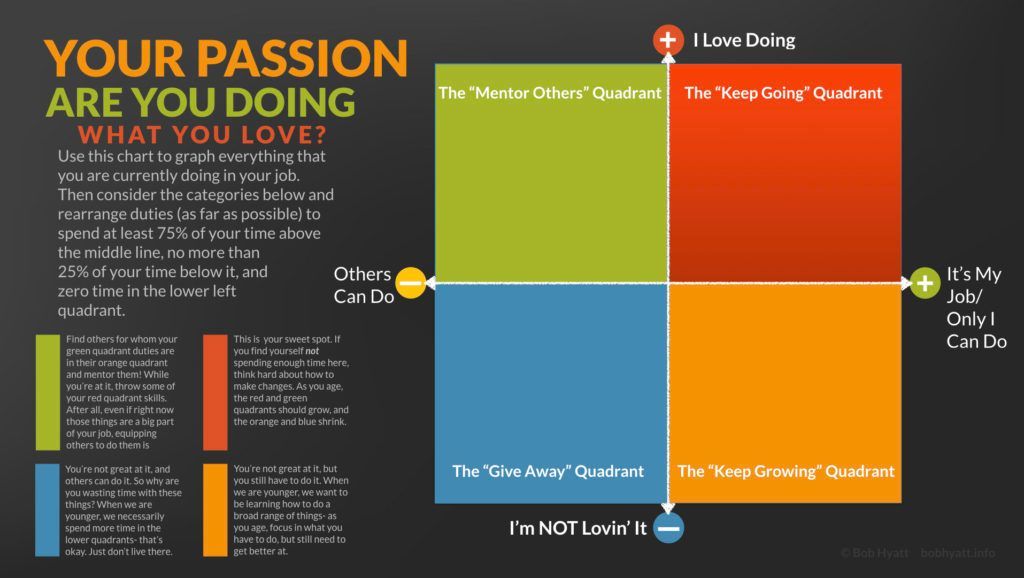
Now do the same with the grid above. What pieces of ministry do you LOVE? Which would you never do again if you could avoid it? Plot it all.
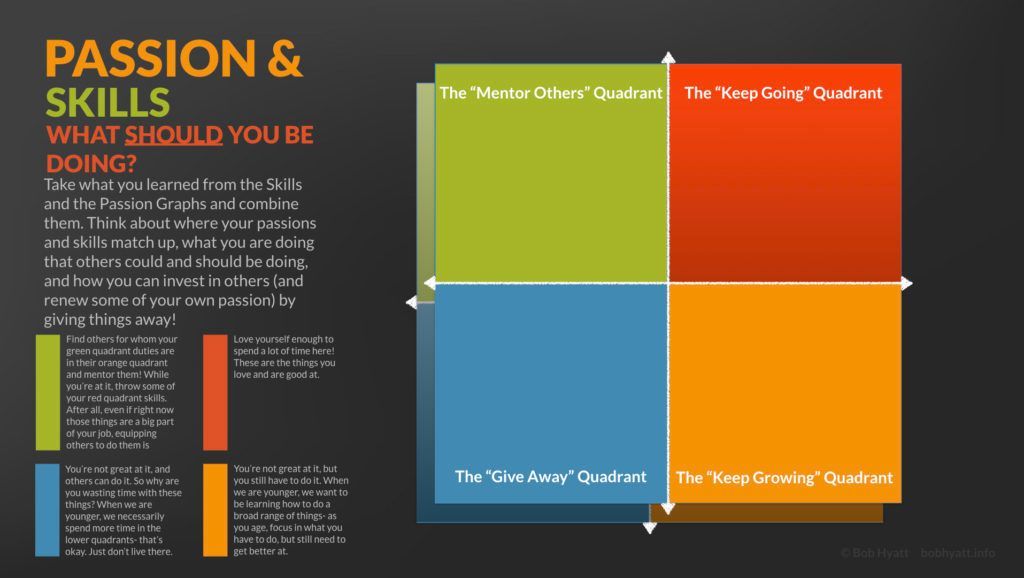
Now, put your results together. What are you good at AND passionate about doing? What should you be working towards getting off your plate? And…
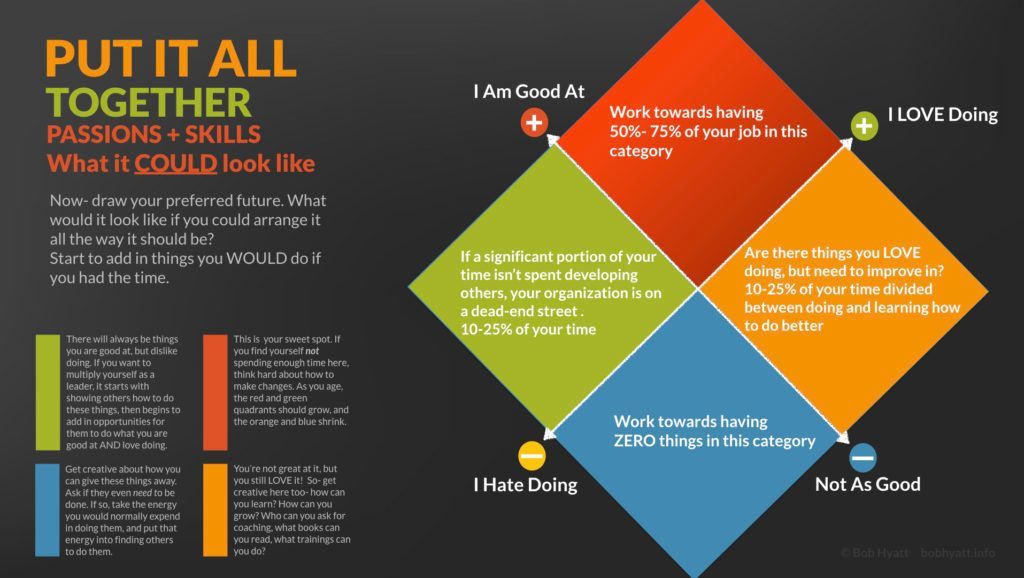
What would the IDEAL future job description look like? What conversations with staff, elders or others do you need to have to move closer to this? What would you ADD if only you had time? What can you give away to MAKE that time? What do you LOVE doing, but need to get more skillful at? And how can you grow in those things?
Doing this exercise as a Lead Pastor with 10-15 years under her/his belt will look different than doing it as a first year associate. When we start out we have little power to shape our jobs- but we can identify what we love doing, what we need help in learning how to do better and what we could give away. Later, as we gain experience and seniority, and with it, the freedom to choose more and more what we will do and what we won’t, intentionality and being honest about what we are good at, could get better at and is worth our time getting better at, and what we can and should just give away will help us make it for the long haul.
Do yourself (and those working with and/or for you) a favor and spend some time thinking about what you are doing, what you could stop doing and where you could grow.
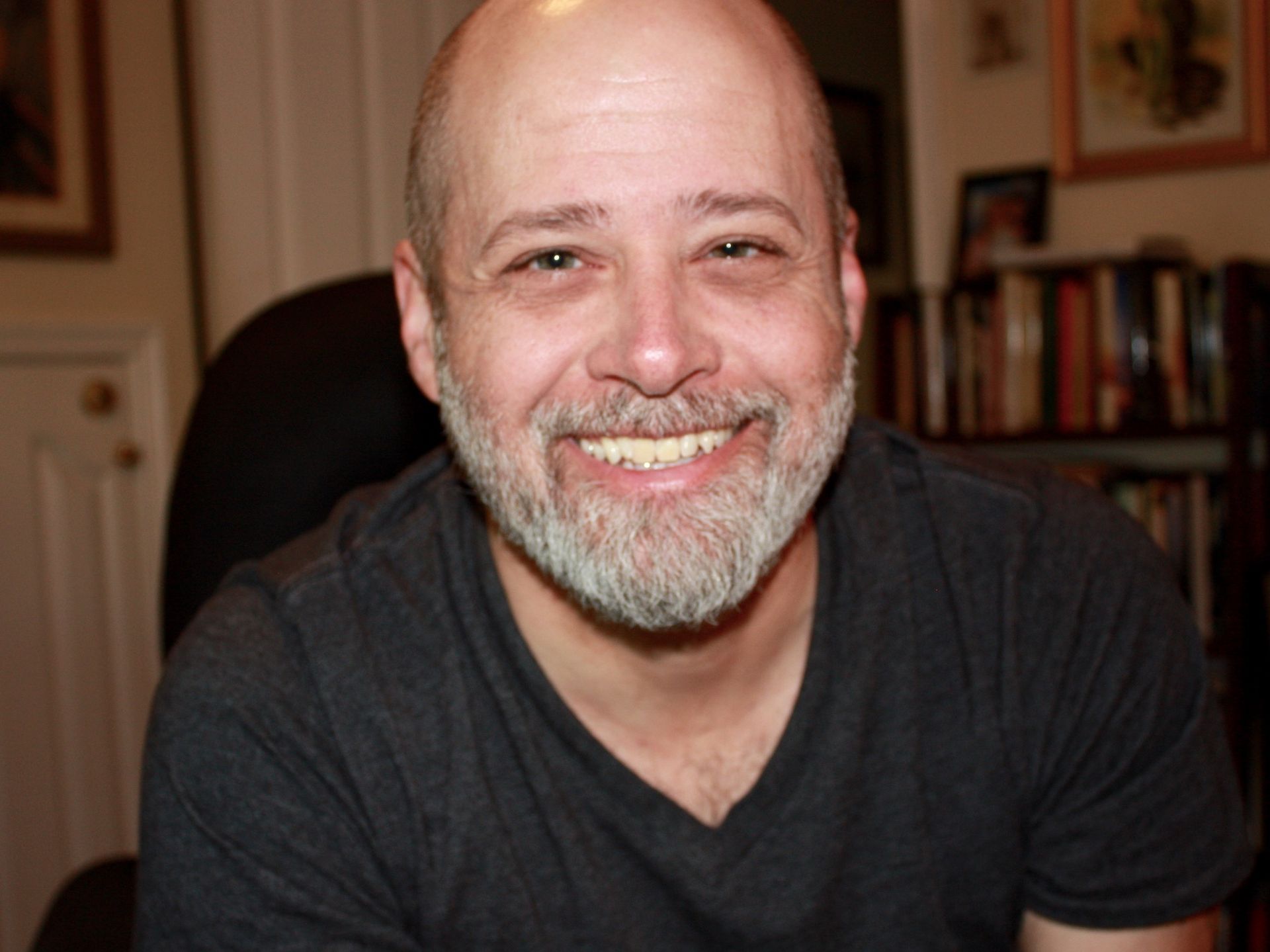
Bob is the Director of Equipping and Spiritual Formation for the Ecclesia Network.
He’s the co-author of Eldership and the Mission of God: Equipping Teams for Faithful Church Leadership as well as Ministry Mantras: Language for Cultivating Kingdom Culture.
He planted the Evergreen Community in Portland, OR in 2004 and holds a DMin from George Fox/Portland Seminary.
Bob currently lives in Boise, ID with his wife, Amy, his kids, Jack, Jane, and Josie and his dog, Bentley.







